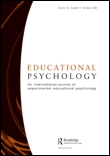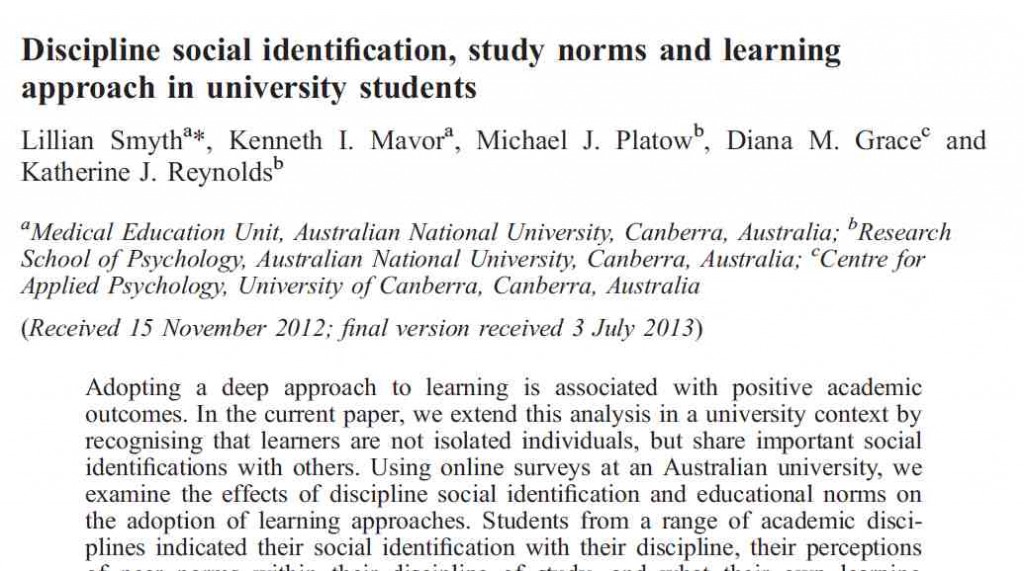This paper in Educational Psychology builds on the work of Platow, Mavor and Grace (2013) and examines the impact of students’ normative expectations about learning approaches in their discipline. The paper is in press, published online.
Abstract:
Adopting a deep approach to learning is associated with positive academic outcomes. In the current paper, we extend this analysis in a university context by recognising that learners are not isolated individuals, but share important social identifications with others. Using online surveys at an Australian university, we examine the effects of discipline social identification and educational norms on the adoption of learning approaches. Students from a range of academic disciplines indicated their social identification with their discipline, their perceptions of peer norms within their discipline of study, and what their own learning approaches were. Results demonstrate a significant role of discipline-related social identification in predicting learning approaches, even after controlling for personal factors and quality of teaching. Moreover, perceived norms moderated this effect. Students’ approaches to learning are affected not simply by their salient self-concepts, but by their salient discipline-related self-concepts and the norms embodied in the learning environment.

